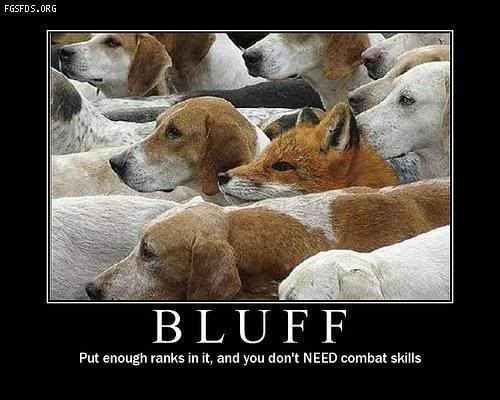In my opinion, an ideal GM will not only always have a quick answer for unexpected questions, but will find a way to convincingly work whatever the players can come up with into the story. When pulled off successfully, a skilled GM can turn a seemingly random and half-joking question into a tantalizing plot hook that gets the party excited, thinking they've stumbled onto a secret bonus or clue.
During a routine dungeon crawl of a deserted gnomish city, the party stumbled upon a cauldron that needed no external fire to cook its contents. For some reason (who knows how players think?) they immediately latched onto it as if it were an invaluable artifact, and lugged it about for the rest of the crawl, despite its encumbrance and weight. I took note of their random attachment to the cauldron for later.
A few levels later it returned to prominence when a prestigious cooking contest was held in their city, as the final event in an annual festival. Naturally, they wanted to win. While researching exotic recipes, they discovered that centuries ago the cauldron had belonged to the now-deceased town founder, a powerful archmage, and that he had been an outstanding chef!
They used a speak with dead ritual, and not only enlisted his culinary expertise, but also found out that that when "heated" with magical fire the cauldron would add extra flavor and deliciousness to its contents. Naturally, they went on to win the contest, all the while excitedly talking about how lucky they were to have grabbed the cauldron way back then, how fortunate they were to discover that the founder had loved to cook, and how clever they were in convincing his ghost to help them. It was one of the most enjoyable sessions of the entire campaign, and everyone had a great time concocting all sorts of terrible meals for the contest.
Of course, what they didn't realize was that nearly all of it was improvised.
The cauldron was real but insignificant, garnering only a single line of text in the book.
The cooking contest, on the other hand, had been added by me, to let the party indulge their bizarre cooking desires (they had also converted a subdued ogre into a chef at their tavern.)
And as for the culinary expertise of the town founder? Entirely a spur-of-the-moment plot hook, after someone rolled a critical success while researching local cooking history at the town library. He had just been looking for recipe ideas, but I felt that a critical success deserved a special reward. So I told them the founder had been a skilled chef, something they definitely hadn't expected, and their eyes lit up at the new possibilities.
Suddenly these random, unrelated bits all came together - the cauldron, the cooking contest, the city itself and this famous historical figure who they had only heard of previously. It was like the big moment of revelation at the end of a mystery novel. I was able to spread the seeds of numerous story pieces and plot hooks, and the player who had gotten the critical success got to bask in the glory.
"Maybe the cauldron was his!" said one enthused player. That's not a bad idea, I thought. And so it was.
All this led into impromptu skill challenge where they spoke to the founder's ghost (laying the groundwork for great plot exploration later on) and "discovered" the cauldron's magic fire property, which - you guessed it - was also invented on the spot.
Letting the players "invent" clues and advantages was great fun for everyone at the table. I got a kick out of letting their decisions and actions dictate what happened next, and was able to almost sit back and let them write the story themselves. And because I maintained a confident, unhesitating front, they were thrilled, believing that they had discovered this secret, hilarious loophole path to victory.

As a GM, it's easy to screw up this potential through the simple act of saying No. It would have been all too easy to say "the cauldron is bolted down" or "the cauldron loses its magic outside of this room." And was the town founder actually a chef? Of course not, but changing this fact sure made for some fun and interesting roleplaying. You want to encourage and stoke your players' creativity, not stomp all over it! Don't be a wall that stops your players cold...be a doorway that opens up into new, interesting paths.
On the other hand, you have to be convincing. When I told my players that the founder had also been a skilled chef, I was calm and almost amazed, like I was impressed that they had managed to dig up this obscure bit of information about him. I may have even pretended to be referencing a special page in the book. Players are like wild dogs - they sense fear. Had I been hesitant or nervous, they would have known that I was making it up on the spot. Not only does this rob your players of their sense of discovery and accomplishment, it's also discouraging, as it seems like you are patronizing them.
Finally, if a quick improvisation job blows up in your face, don't fret about it - it's bound to happen sooner or later. Remember, you're hanging out with friends, not giving a presentation at work. If you're stressing out about making on-the-fly decisions and dealing with unexpected things, you're putting way too much pressure on yourself. At the very worst, you admit you screwed up or got some facts mixed up, you get some ribbing from your players, and you move on. The potential benefits are well worth the risk.

0 comments:
Post a Comment